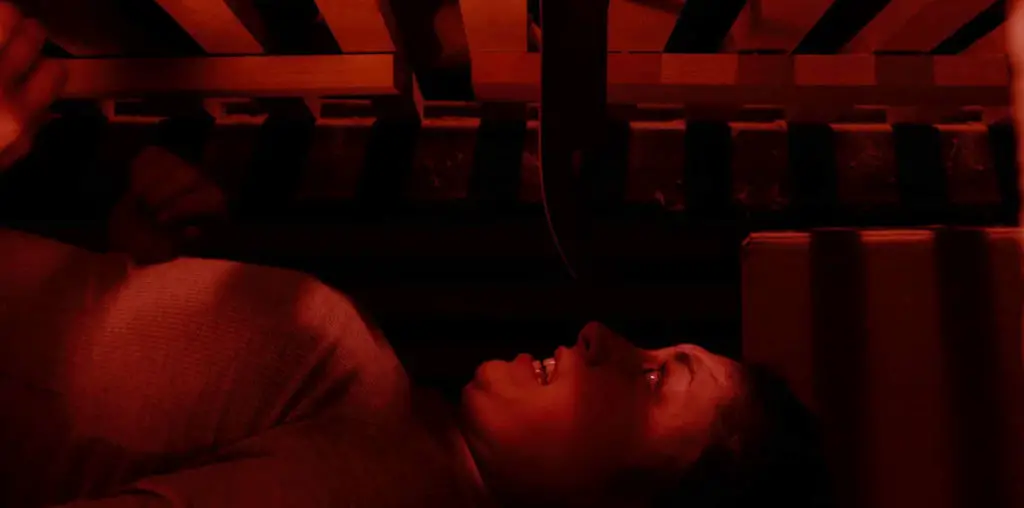
It is tempting to call “The Fantasticks,” Michæl Ritchie’s long-on-the-shelf (it was completed in 1995) film of the long-running off-Broadway musical a too little, too late attempt to revive the form of film musical that is indeed dead — the traditional type where characters burst into song (and, often, dance) at the drop of a hat and a full orchestral backing (and chorus) materializes just as spontaneously. The film is based on a play perhaps second-best known (behind the popular pair of tunes “Try to Remember” and “Soon It’s Gonna Rain”) for its minimalism in staging and story. And in remaining true to the spirit of the original production, Ritchie’s “The Fantasticks” is hardly revolutionary; a trifle of a film based on a trifle of a show — and in its resolutely old-fashioned ways is where its ingratiating charm lies.
The writers of the original play, Tom Jones and Harvey Schmidt, wrote the screenplay, and as such the simple story remains intact. Neighbors Bellomy (Joel Grey) and Hucklebee (Brad Sullivan) pretend to feud in an effort to bring Bellomy’s daughter Luisa (Jean Louisa Kelly) and Hucklebee’s son Matt (Joe McIntyre) together. Their plan works, and they enlist the aid of mysterious carnival magician El Gallo (Jonathon Morris) to “resolve” the “feud”. After a long night during which the elaborate plan plays out and Matt is crowned a “hero,” all’s right with the world — that is, until the harsh light of day makes clear how less than ideal things really are.
“The Fantasticks” had long been considered unfilmable since it is typically performed on a bare stage with virtually no props. Since such minimalism is unthinkable for the big screen, Ritchie has opened up the play to the extreme, filming in full Panavision glory — all the better to capture Fred Murphy’s gorgeous photography of the film’s adopted setting of the ’20s American Midwest. The stunning images, plus the reorchestrated score (adapted from Jones and Schmidt’s original arrangements by Jonathan Tunick) give simple scenes such as Luisa’s big “I Want” song, “Much More,” an epic quality that harkens back to the grand screen musicals of yesteryear.
While Ritchie adjusted a number of things in the translation to film, the one thing he curiously didn’t weren’t the performances. On one hand, this is a good thing; he employed new digital technology to capture the actors’ singing live on set rather than have them lipsynch to a prerecorded track (the standard procedure for all other musical films). But the sense of intimacy achieved by the live vocals is cancelled out by the broad, stagy performance quality he coaxes from his cast. While a seasoned theater pro like Grey and the luminous ingenue Kelly are able to get away with some exaggerated mugging, such an approach proves nearly ruinous for the new kid on the block (in every sense), McIntyre. Luckily, his all-too-evident inexperience as an actor is compensated by his sweet rapport with Kelly.
It also helps that McIntyre, widely thought to be his former boy band’s best singer, can indeed carry a tune, for after all the key to “The Fantasticks”‘ enduring stage success are those memorable, hummable tunes. Just as the story is as flimsy and inconsequential as ever, the music — invigorated by the actors’ spirited vocal performances — is still able to cast a magical spell. Unfortunately, in this day and age most people’s society-nurtured cynicism has immunized them to the quiet and decidedly old-school delights of a film like “The Fantasticks,” which is much too modest to spur on a full-on revival of this type of movie musical (and, to no one’s surprise, its box office returns have been soft at best). But for those who still bear a sense of that unabashedly innocent, almost naive romanticism, “The Fantasticks” presents an inviting opportunity to “try to remember” a cinematic art that has sadly been all but lost.

